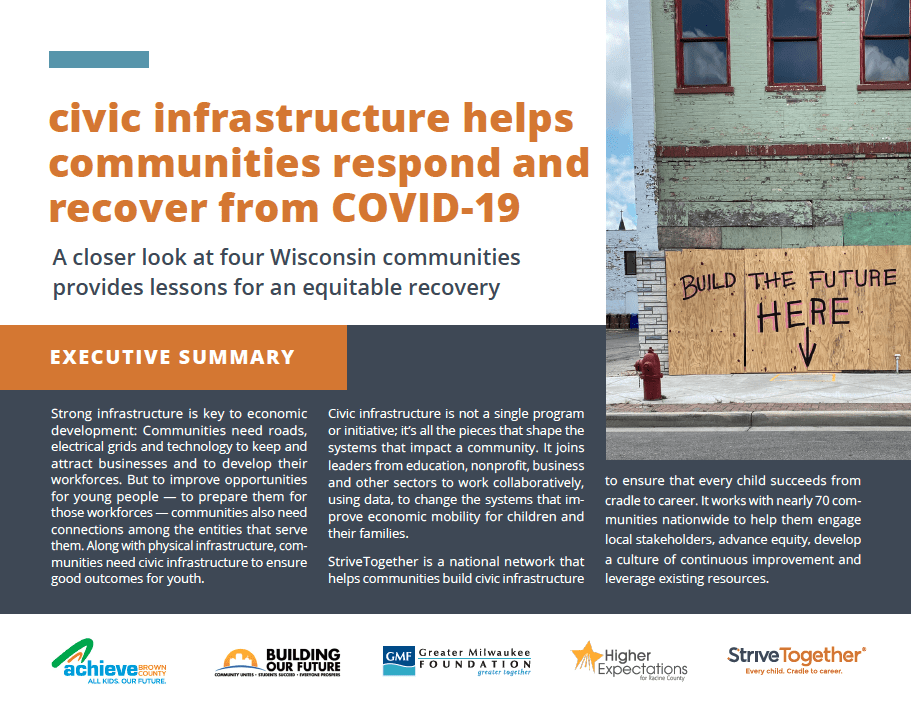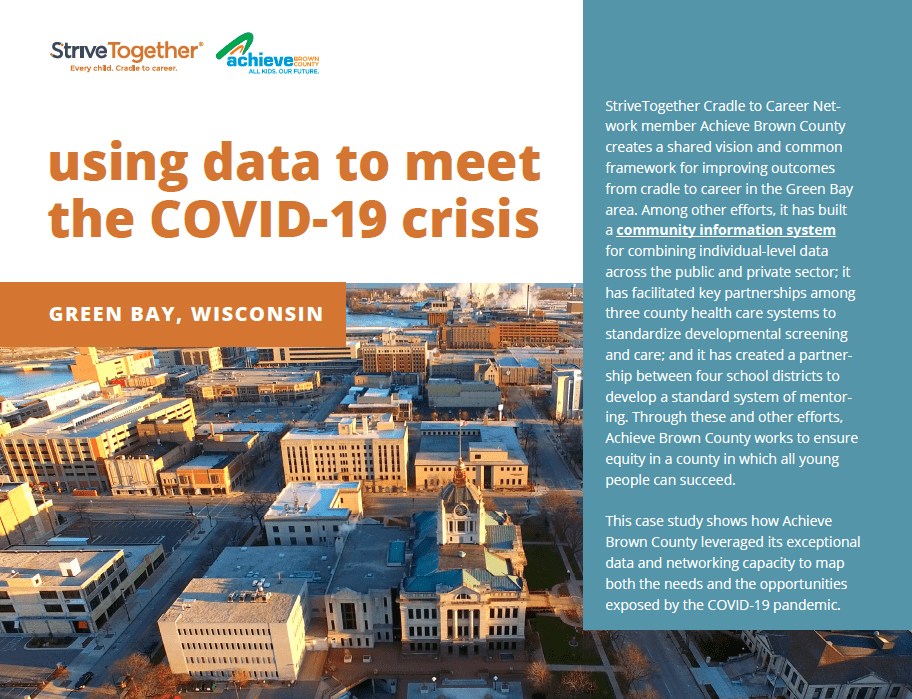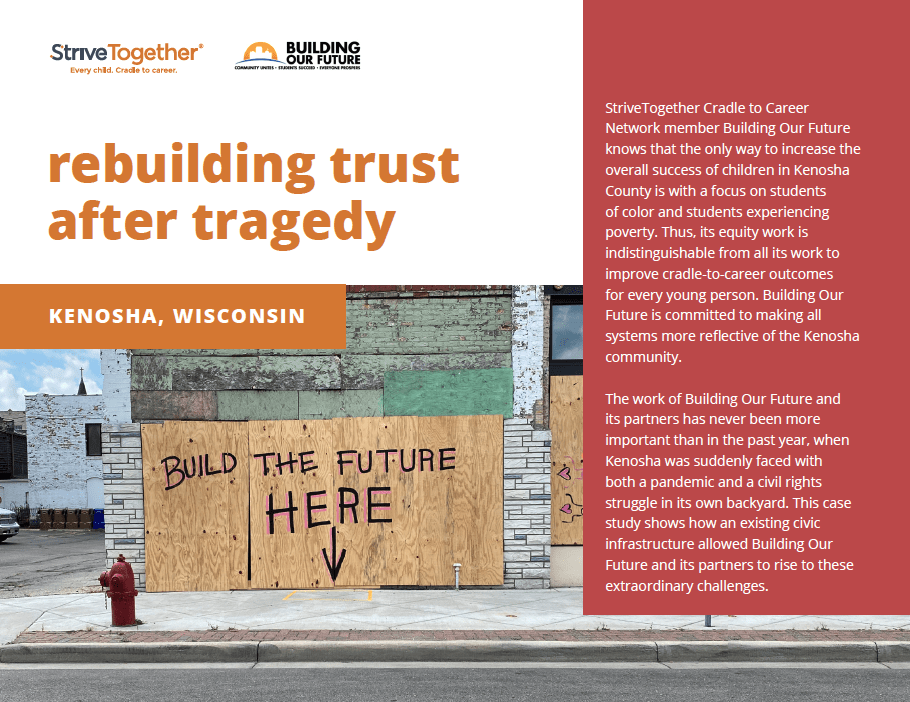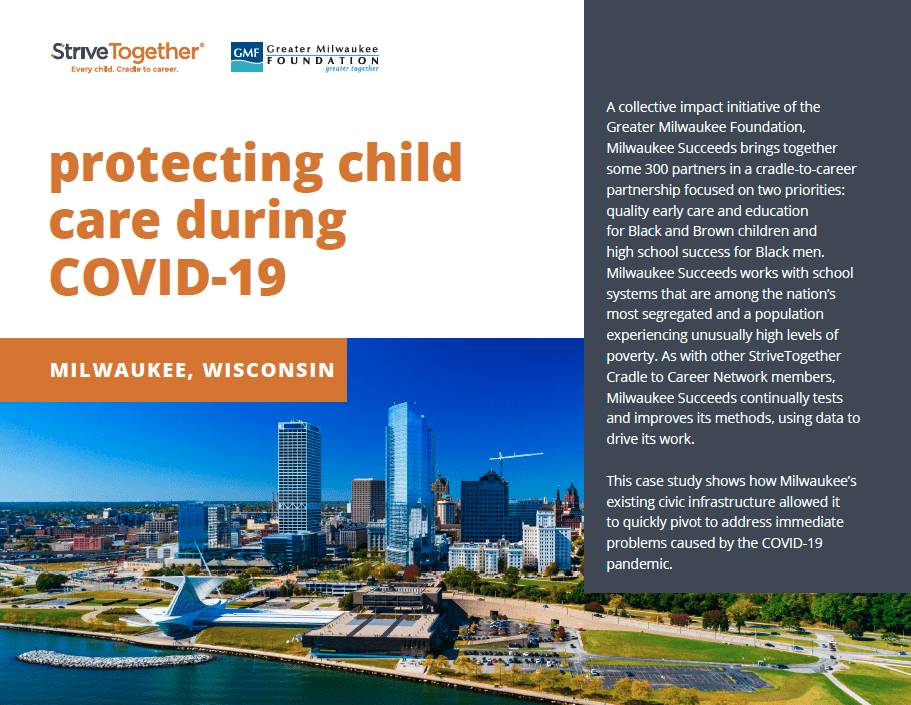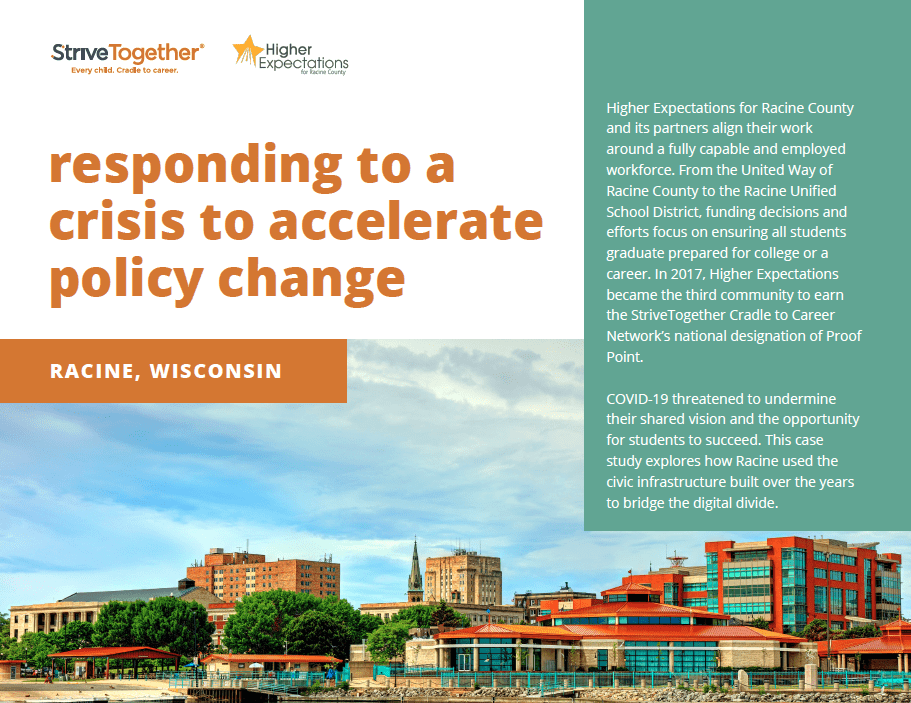WISCONSIN
building an
equitable recovery
from COVID-19
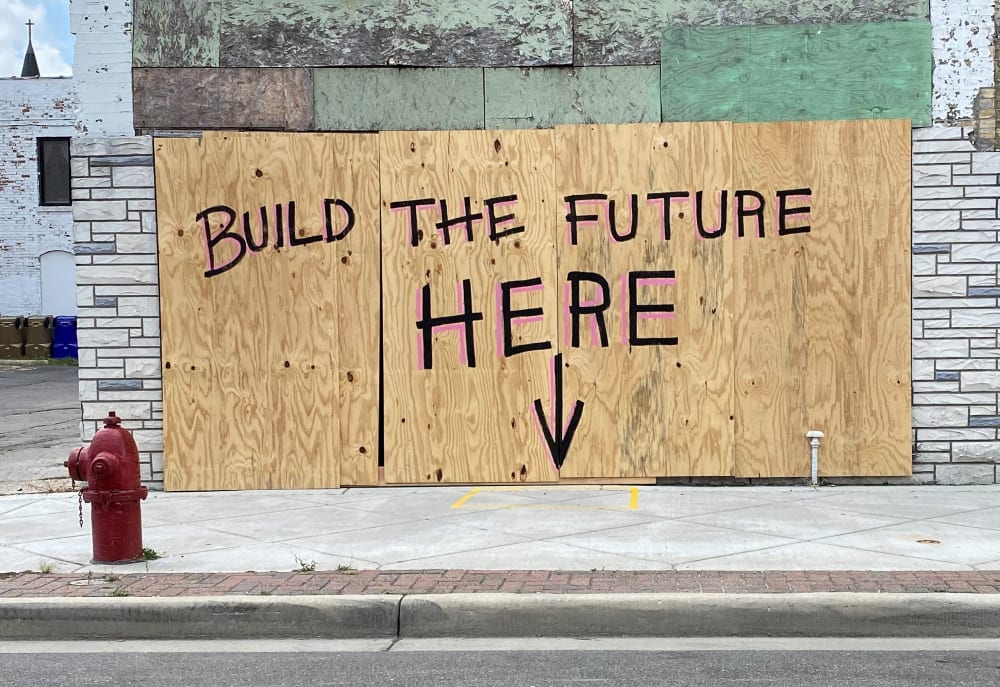
A closer look at four Wisconsin communities provides lessons for a successful recovery
Communities need roads, electrical grids and technology for economic development. Along with this physical infrastructure, communities need civic infrastructure to ensure good outcomes for young people.
Civic infrastructure is not a single program or initiative; it’s all the pieces that shape the systems that impact a community. It joins leaders from education, nonprofit, business and other sectors to work collaboratively, using data, to change the systems that improve economic mobility.
The COVID-19 pandemic and its economic fallout, along with the public awakening to racial injustice, have tested communities as never before. But those with established civic infrastructures have been well prepared to tackle these challenges. Four such communities are Green Bay, Kenosha, Milwaukee and Racine, Wisconsin.
- In Green Bay, partners gathered and analyzed data to create a map of child-related services, needs and opportunities for collaboration.
- In Kenosha, partners convened community members in conversations about equity, starting the process of healing that has advanced existing work.
- In Milwaukee, partners collaborated to reopen child care centers safely, secure protective equipment, open new centers and add capacity for students learning remotely.
- In Racine, partners helped change state internet policies, open up Wi-Fi access and put devices in the hands of all students.
In this series of case studies, we take a deeper look at how each of these communities has used its civic infrastructure to address immediate, pandemic-related needs in ways that have also informed and enhanced their long-term work. The Wisconsin partners are models for communities nationwide as they work toward successful recovery for every child and family.

